Tokyo Olympics 2021: Doping and drugs a hot topic, athletes question Russian medals
Russia has angrily hit back at suggestions events involving ROC athletes are “probably not clean”, intensifying its war of words with the US.
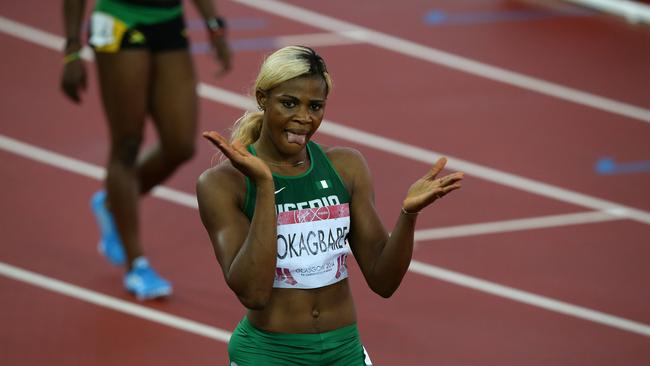
Olympics
Don't miss out on the headlines from Olympics. Followed categories will be added to My News.
The Russian Olympic Committee did not take kindly to insinuations of doping among their athletes.
American swimmer Ryan Murphy sounded off after his second loss to Evgeny Rylov this week at the 2021 Olympics, calling it a “huge mental drain” to be in a race “that’s probably not clean.”
The ROC tweeted out a mocking response that seemed aimed at Murphy and other competitors who have bemoaned the Russian athletes’ presence in Tokyo.
“English propaganda is oozing verbal sweat onto the Tokyo Games. Through the mouths of athletes offended by defeats,” the ROC tweeted.
“We will not console you. We’ll forgive those who are weaker. God is their judge. He is our helper.”
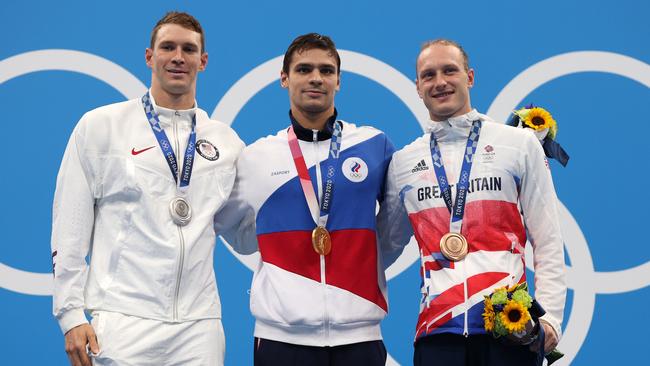
Murphy finished the race in 1:54:15 in the 200-meter backstroke, just .88 of a second behind Rylov’s Olympic-record finish – days after finishing third in the 100m backstroke behind Rylov and his Russian teammate Kliment Kolesnikov.
Murphy swept the events in 2016, with Rylov’s win ending the US streak of 12 straight individual backstroke golds.
“I’ve got about 15 thoughts,” Murphy said.
“Thirteen of them would get me in a lot of trouble. It is what it is. I try not to get caught up in that. It is a huge mental drain on me to go throughout the yet that I’m swimming in a race that’s probably not clean, and that is what it is.
“The people that know a lot more about the situation made the decision they did. It frustrates me, but I have to swim the field that’s next to me. I don’t have the bandwidth to train for the Olympics at a very high level and try to lobby the people who are making the decisions that they’re making the wrong decisions.”
SPRINTERS BARRED FROM OLYMPICS AFTER FAILED TESTS
Nigerian sprinter Blessing Okagbare and Kenyan 100 metres specialist Mark Odhiambo were thrown out of the Tokyo Olympics after failing doping tests.
Okagbare, who was due to have run in the semi-finals of the women’s 100m on Saturday, tested positive for human growth hormone.
Okagbare, 32, a silver medallist in the long jump at the 2008 Beijing Olympics, failed the test on July 19, four days before the Tokyo Olympics opening ceremony.
Odhiambo was to have lined up for the heats of the men’s 100m but he has been suspended after testing positive for anabolic steroids, the International Testing Agency (ITA) said.
“The athlete … has been informed of the case and has been provisionally suspended until the resolution of the matter in line with World Anti-Doping Code and the IOC Anti-Doping Rules,” the ITA said in a statement.
The 28-year-old Odhiambo, who has a best time of 10.05sec, has challenged the result and the case has been referred to the anti-doping division of the Lausanne-based Court of Arbitration for Sport.
Kenya is in category ‘A’ of the World Anti-Doping Agency watchlist of countries considered to be the highest doping risk and its athletes must undergo rigorous testing to be eligible to compete at the Olympics and world championships.
Kenyan sports principal secretary Joe Okudo said the ministry had received an official report about the adverse analytical findings on the samples collected from the athlete on July 28, while he was in the Olympic Village.
“The Ministry is still waiting for the conclusion of an appeal filed by the athlete and underscores the Government’s commitment in the fight against doping,” Okudo said.
Doping has had a profound effect on Kenya’s most successful sport with over 60 athletes suspended in the last five years for offences that include failures to declare their whereabouts to anti-doping testers.
Two runners who had failed to meet the requirements were left out of the Kenyan squad before their departure for Tokyo.
Among the top athletes to be sanctioned for doping offences are the 2016 Olympic women’s marathon champion Jemima Sumgong, the 2008 men’s 1500m gold medallist Asbel Kiprop and former three-time Boston marathon winner Rita Jeptoo.aik/gj/DJ
WHY ARE SO MANY RUSSIANS AT THE OLYMPICS?
One of the champions on the US swim team says he is competing in a pool that is “probably not clean”.
After taking the silver medal in the 200m backstroke final, Ryan Murphy said he was frustrated by ongoing questions about drug usage in international swimming.
There are also concerns about the IOC decision to allow Russian athletes to compete despite the country being banned for systemic doping of athletes.
The cleared athletes compete under the banner of the Russian Olympic Committee (ROC).
“I’ve got about 15 thoughts,” Murphy said, when asked if the race was fair.
“Thirteen of them would get me into a lot of trouble. It is what it is. It is a huge mental drain on me to go throughout the year that I’m swimming in a race that’s probably not clean, and that is what it is.
“The people that know a lot more about the situation made the decision they did. It frustrates me, but I have to swim the field that’s next to me. I don’t have the bandwidth to train for the Olympics at a very high level and try to lobby the people who are making the decisions that they’re making the wrong decisions.”
The 200m backstroke final was won by Russia’s unbeatable Evgeny Rylov and when asked if Murphy’s comments were directed at him, Rylov said: “I have always been for clean sport, I am always tested, I also fill out all the forms, so from the bottom of my heart I am embracing clean sport. I have devote my life to this sport.
“I would rather not react to what you are getting at.”
Murphy responded that it was going to take a long time to clear swimming of doping, saying he had spoken to FINA officials about it.
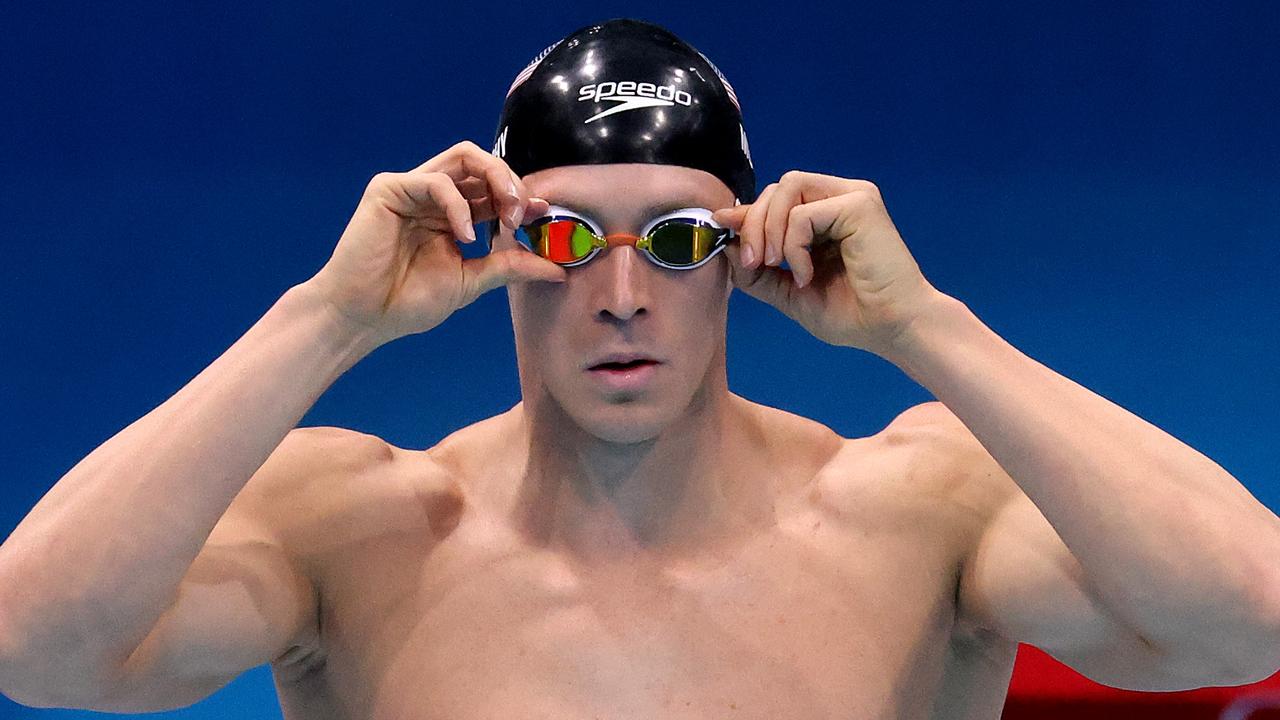
“When you hear that from the top, that’s tough to hear. Yeah, that’s what I believe.”
He later said he was clarifying his comments and was talking about swimming in general.
“It was not to make any allegations here. Like congratulations to Luke and Evgeny. They did an incredible job.”
The bronze medallist, Briton’s Luke Greenbank, said: “It’s obviously a very difficult situation not knowing whether the race is clean, It’s a strange situation, but I’ve got to keep my mind on my own situation and focus on what I can control.”
The ROC currently sits fourth on the medal table in Tokyo, with 335 athletes cleared to compete across all sports.
A World Anti-Doping Agency investigation found that more than 1000 Russian athletes from 30 sports either benefited from, or were involved in, a state-backed doping scheme between 2011-2015.
But the IOC and Court of Arbitration for Sport devised a work-round to allow Russian athletes to attend as “neutrals.’’
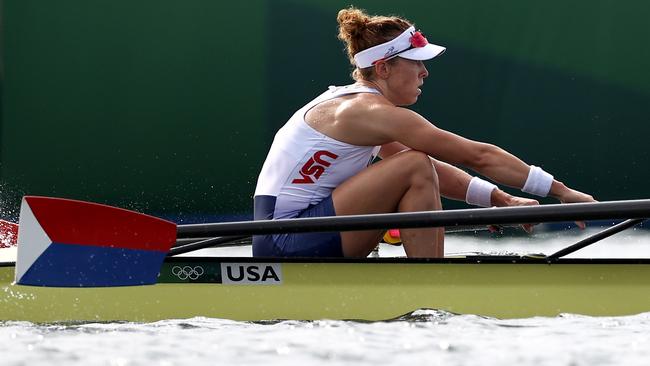
Its athletes are marching under a different flag, and their uniforms, while in the Russian colours, are of a different design to the official Russian uniforms. The Russian national anthem is not played at medal ceremonies, with a portion of Tchaikovsky’s Piano Concerto No. 1 played instead.
But while the team can only call itself ROC on paper, announcers at venues call its full name of Russian Olympic Committee, meaning there is no doubt it is a Russian team competing.
American rower Megan Kalmoe also hit out after the Russians took silver in the rowing tandem A finals.
“Seeing a crew who shouldn’t even be here walk away with silver is a nasty feeling,’’ she wrote on Twitter.
“Really disappointing overall and I feel for the other athletes in the A final.’’
WADA, which unsuccessfully lobbied to have the Russian athletes wear neutral colours, remains deeply unhappy with the neutering of its findings, which included that Russia had swapped dirty urine samples with clean samples through a hole in the wall at the Sochi winter games, and manipulated and covered-up data at the Moscow laboratory used to process athlete samples.
Russia was originally banned by the Court of Arbitration for Sport from competing in the Olympics, Paralympics and World Championships for four years. Last year, the ban was cut to two years.
Under the deal struck with the ICO, the powerhouse country sent 335 athletes – who were not found to have been involved in the doping scheme – to Tokyo to compete, where they have so far won nine gold, 12 silver and nine bronze.
There is precedent for the quasi ban. The Kuwait Olympic Committee was “banned’’ from the Rio Games in 2016 for passing sports laws that the IOC complained affected its autonomy.
Kuwait athletes were instead allowed to compete under the name Athletes from Kuwait.
Taliban-controlled Afghanistan was banned from Sydney in 2000 because of its discrimination against women, and did not take part.
OLYMPIC DOPING ROW AS 20 ATHLETES BOOTED
A doping war has broken out at the Tokyo Olympics after half the Nigerian team was struck off the start lists and athletes from five other countries have also had their campaigns ended.
The Athletics Federation of Nigeria (AFN) has admitted “lapses” on its part over the disqualification of 10 athletes from Tokyo for not complying with out-of-competition drug testing requirements.
The Athletics Integrity Unit (AIU) had announced the disqualification of the Nigerian athletes.
“The AFN bears responsibility for any lapses that may have occurred during the process and reassures Nigerians that our performances (at Tokyo Olympics) will not be negatively impacted,” it said in a statement.
“All our athletes resident in Nigeria and who qualified for the Olympic Games completed the three mandatory tests,” it said.
“Most of our top athletes resident in the USA also completed their tests,” the AFN said.
“However, a few athletes in the American collegiate system were tested, but those tests were deemed not to have complied with WADA (world anti-doping agency) sample collection and analysis standards.”
The AFN said it had appointed a top official to head its medical and anti-doping commission.
Star sprinter Blessing Okagbare, who will compete in the 100m and 200m in Tokyo, was critical of the country’s sports officials.
“The sport system in Nigeria is so flawed and we athletes are always at the receiving end of the damages,” she said.
“They were busy fighting over power, exercising their pride over Puma contract/kits forgetting their major responsibility – the athletes.
“It’s sad that this cycle keeps repeating itself and some people will come out to say I am arrogant for speaking my truth. It’s my career,” she added.
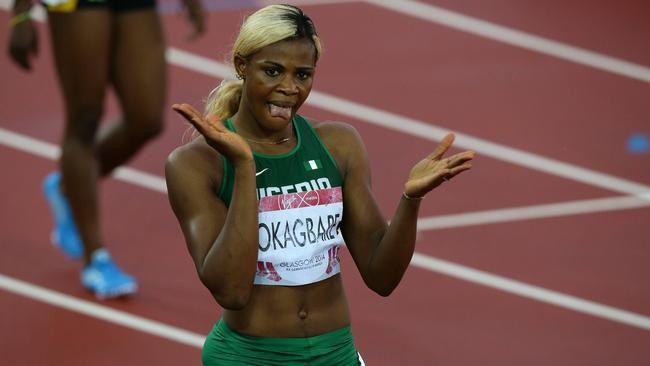
Russia is not allowed to officially send athletes to the Olympics after a state-sponsored doping scheme, but Russian athletes are still competing under a neutral flag under the “Russian Olympic Committee” moniker.
As could perhaps be expected, several athletes are frustrated with those athletes’ success. American rower Megan Kalmoe expressed her frustration with the Russian tandem of Vasilisa Stepanova and Elena Oriabinskaia after they took home silver in the rowing A final.
“Seeing a crew who shouldn’t even be here walk away with a silver is a nasty feeling,” Kalmoe wrote on Twitter. “Really disappointing overall and I feel for the other athletes in the A Final. Big love to all my friends and frenemies who gave it everything out there.”
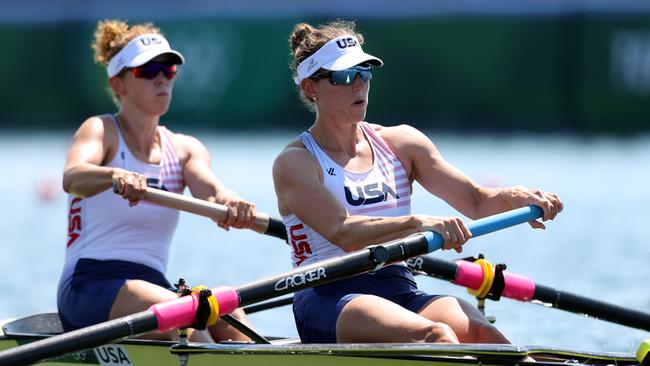
Seeing a crew who shouldn’t even be here walk away with a silver is a nasty feeling. Really disappointing overall and I feel for the other athletes in the A Final. Big love to all my friends and frenemies who gave it everything out there.
— Megan Kalmoe (@megankalmoe) July 29, 2021
Kalmoe, along with Tracy Eisser, competed against Stepanova and Oriabinskaia in the semi-finals, in which the Russians placed second and the Americans placed fifth. Only the top three semi-finalists advance to the A final, so Kalmoe and Eisser would still not have made it even if the Russians were absent. They ended up competing in the B final.
That did not ease her frustrations watching the Russians compete – and win – without any individual consequences.
“I just posted on Twitter a couple of things that I’m sure some people will be upset about, or maybe they won’t,” Kalmoe clarified to row2k.com. “But I think a lot of people in this field are very, very classy women who are probably a little bit too polite to say some of the stuff that I’m willing to say, especially because I wasn’t in the A-final, and also because Russia beat us by enough places in our qualifier that they didn’t take a spot from us, but having them here and having them walk away with one of the medals was really hard for me to watch.
“I don’t think that they should have been here, and there are a lot of women here that I think were very qualified to win one of those medals, and them not having that opportunity because that boat was here was very problematic for me as a competitor.”
Originally published as Tokyo Olympics 2021: Doping and drugs a hot topic, athletes question Russian medals






